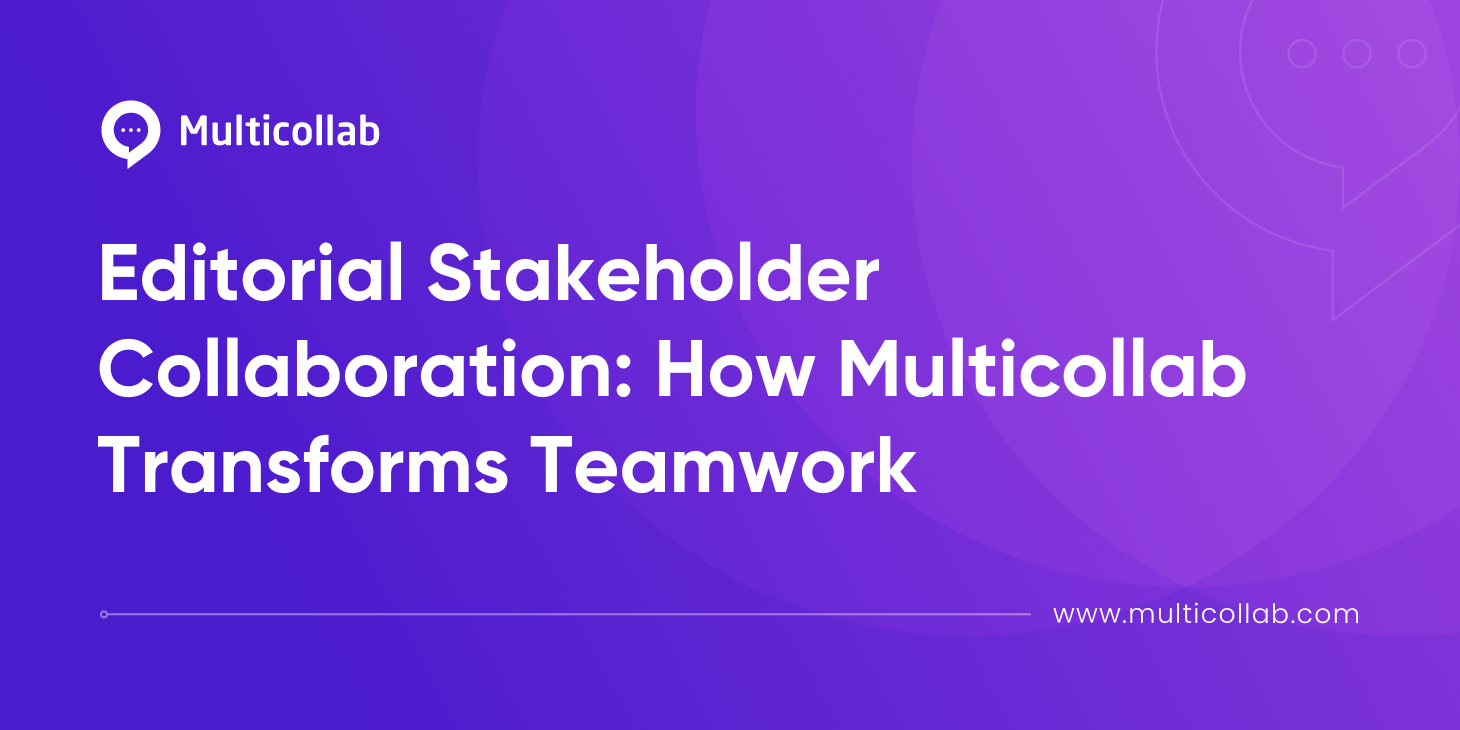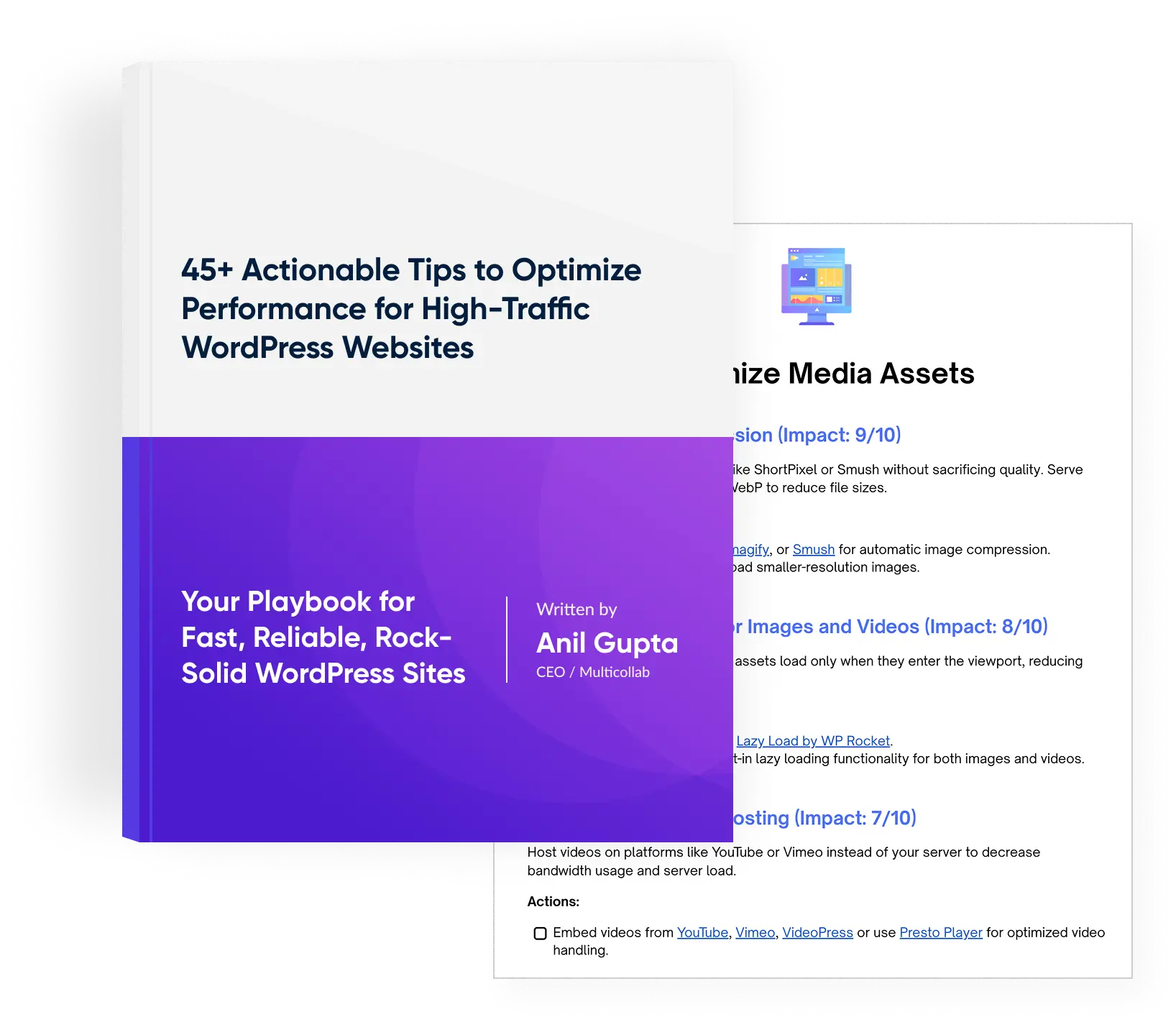Table of Contents
When it comes to modern publishing businesses, effective collaboration among stakeholders is not just desirable – it’s essential for success. Yet, many content teams struggle with scattered feedback, communication breakdowns, and inefficient content sharing, hindering their collaborative efforts.
Enter Multicollab, a game-changing WordPress collaboration plugin designed to transform editorial teamwork and communication.
In this article, we’ll explore how Multicollab addresses common collaboration challenges and revolutionizes stakeholder collaboration for the better.
The Importance of Effective Stakeholder Collaboration
Every content publishing project requires seamless collaboration among internal content teams and external stakeholders.
Content stakeholders form a diverse network of individuals and teams, each contributing significantly to shaping the final content piece. This collective includes authors, editors, reviewers, clients, external consultants, and even the audience. Each stakeholder brings their unique perspective, expertise, and expectations to the table, enriching the content creation process with valuable insights and contributions. However, that doesn’t come without its own set of challenges.
Throughout each phase, clear and concise communication with stakeholders is essential to ensure their feedback is accurately comprehended and incorporated. This robust communication loop not only fosters understanding but also elevates the overall quality of the content, aligning it more closely with stakeholder expectations and objectives.
This establishes how clear and transparent communication not only fosters trust but also facilitates decision-making and ensures alignment among stakeholders. By establishing robust communication channels, teams can navigate challenges more effectively, thus streamlining collaboration processes that help create high-quality content.
How Multicollab Revolutionizes Stakeholder Collaboration in WordPress?
Multicollab revolutionizes stakeholder collaboration in WordPress by offering a suite of powerful features tailored to enhance editorial teamwork and communication.
Let’s delve into how Multicollab transforms collaboration, focusing on its key features and benefits:
Real-time Collaboration: With Multicollab’s real-time collaboration feature, multiple users can work together simultaneously, editing content directly within the WordPress interface. Hence, Multicollab’s real-time collaboration in WordPress improves stakeholder communication, and streamlines content creation processes, allowing teams to make instant changes and witness content come to life collaboratively.
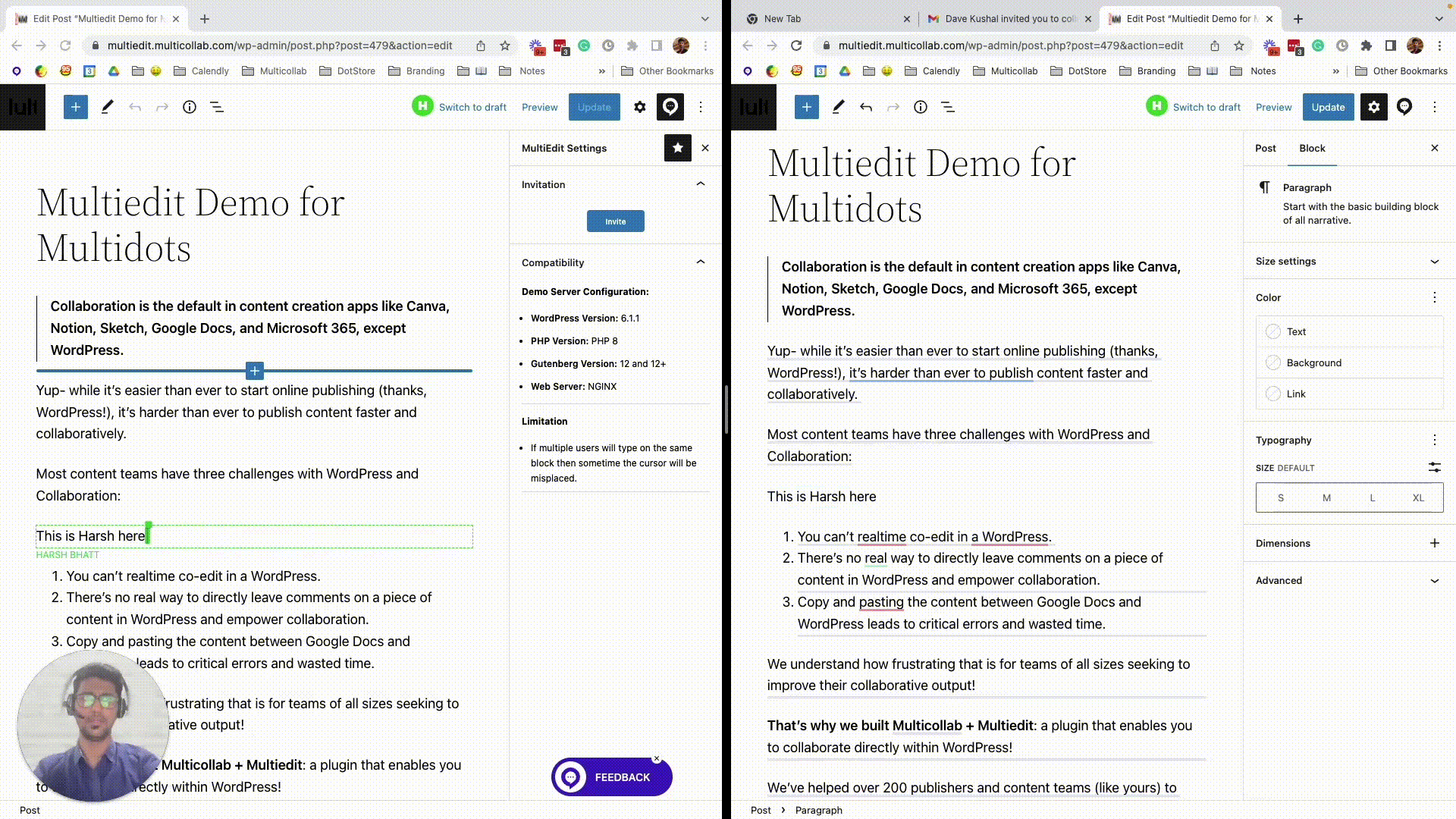
Inline Commenting: Multicollab enables users to add inline comments to any text or media within a blog post, similar to the functionality found in Google Docs. This feature facilitates efficient review and feedback exchange during the post-drafting and editing stages, enhancing communication and collaboration among team members.
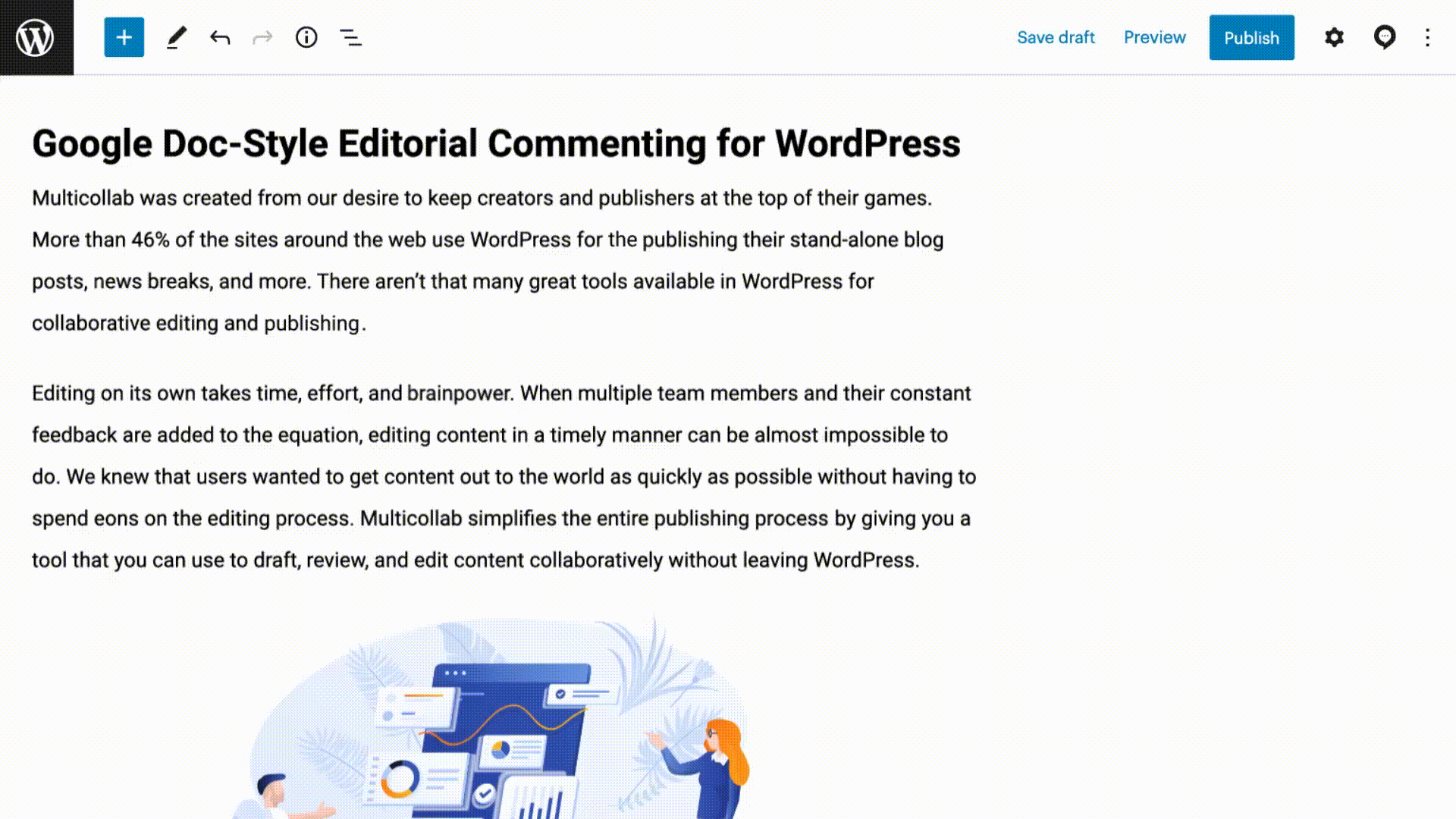
Suggestion Mode: Track your content creation process with Multicollab’s Suggestion Mode, which highlights edits made to posts or pages. This feature allows teams to easily navigate through workflows, accept or reject edits, and collaborate effectively, ensuring content accuracy and alignment with project goals.
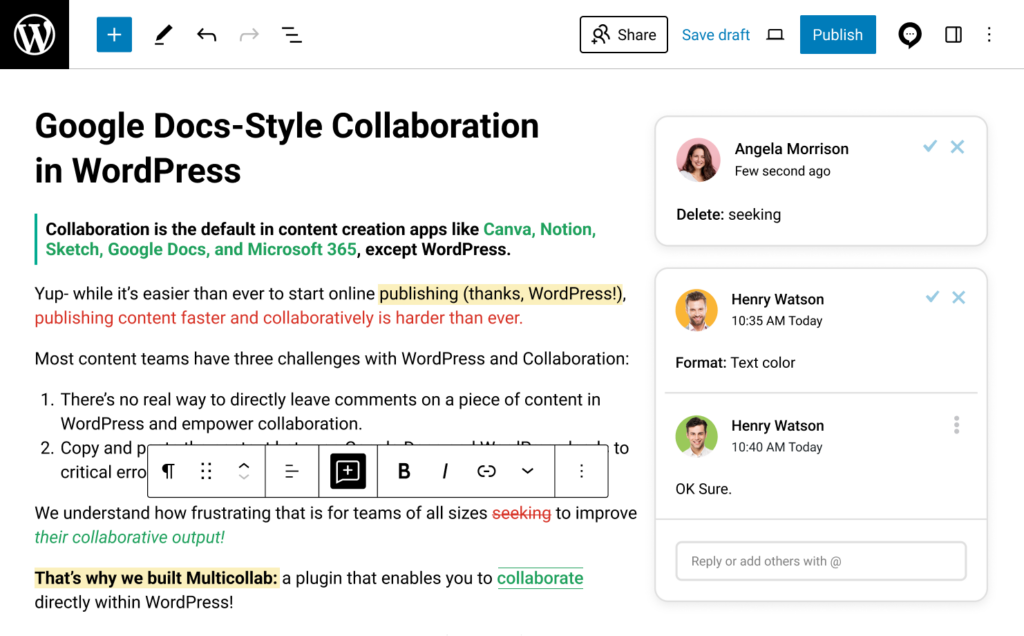
Guest Collaboration: Most importantly, Multicollab offers a great feature which is especially suited for external stakeholders such as client or their editors. Users can invite guests to collaborate without requiring a WordPress user account, streamlining the collaboration process and ensuring seamless communication with all project stakeholders.
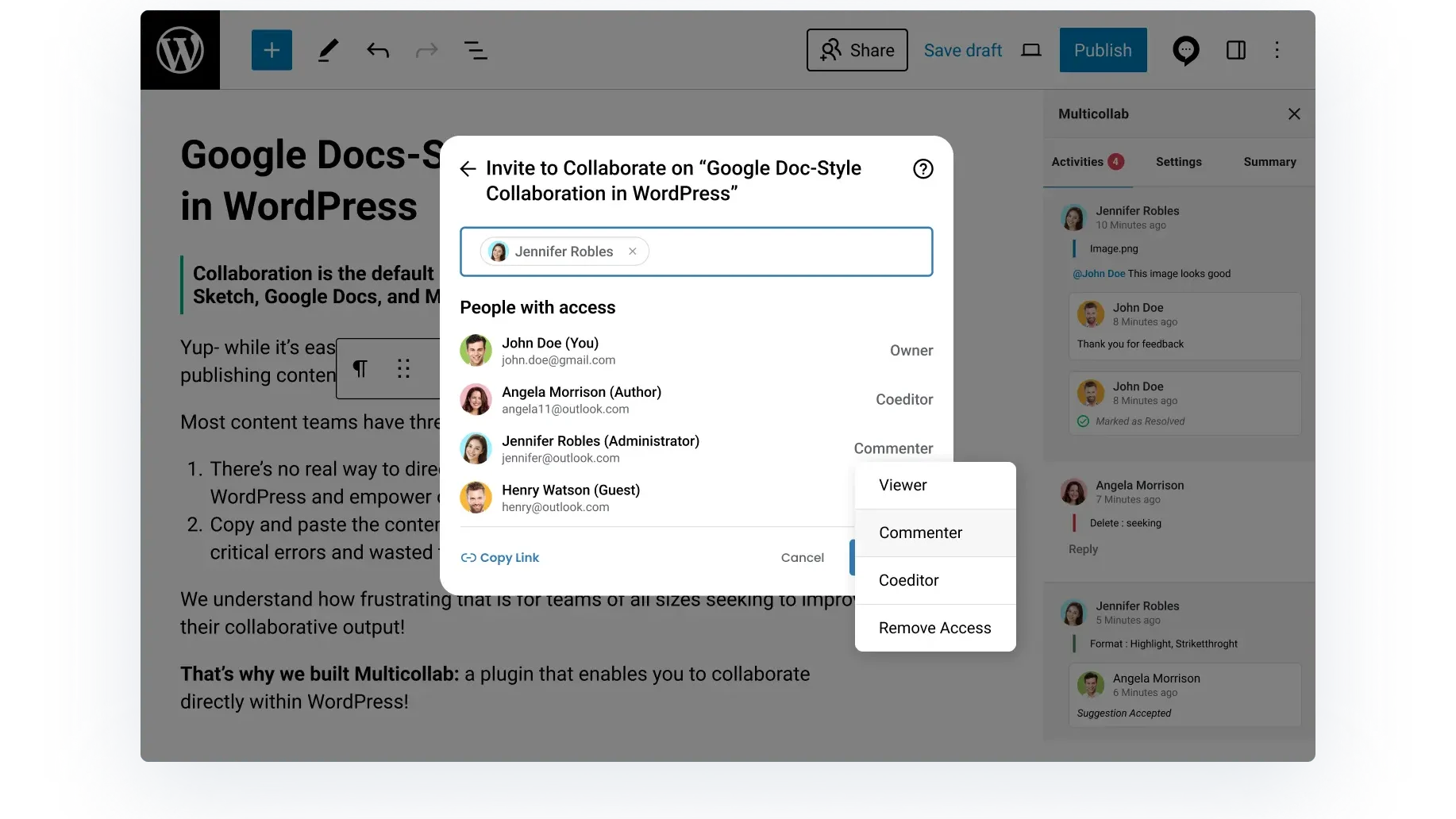
Slack Notifications: Integrate Multicollab with Slack to receive important notifications directly in your Slack channel. This feature enhances team connectivity and ensures that collaborators stay informed about project updates and activities in real-time.
Attach Document to Comment: Collaborators can share additional references and context by attaching images or documents to their comments and replies. This feature enhances communication clarity and allows users to provide comprehensive feedback within the Multicollab platform.
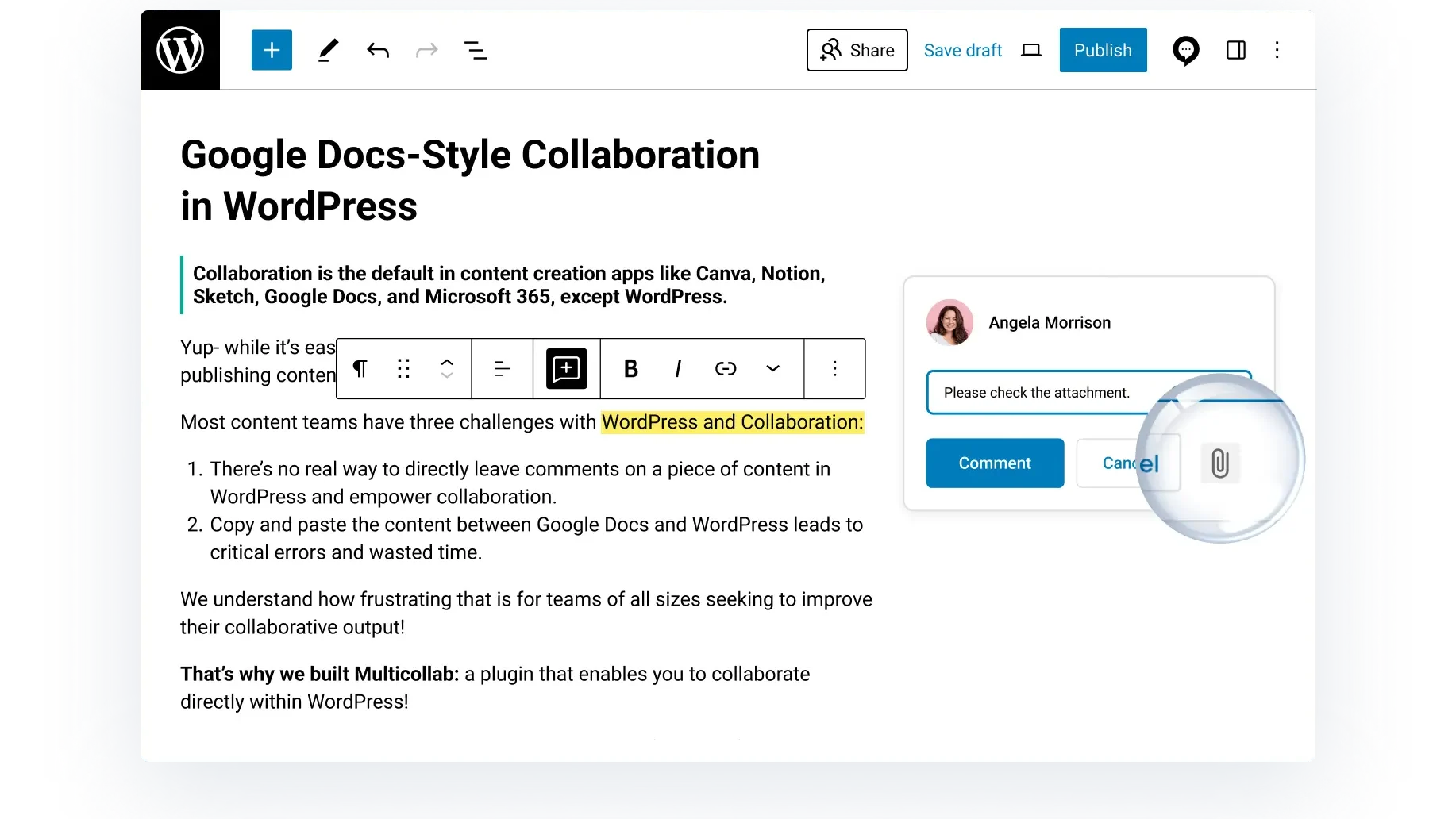
Reports and Activity: Gain better insight into your editorial workflow with Multicollab’s Reports and Activity feature. Monitor collaboration progress across all pages and posts, track comment activities, and access quick snapshot reports to stay informed about content status and team productivity.
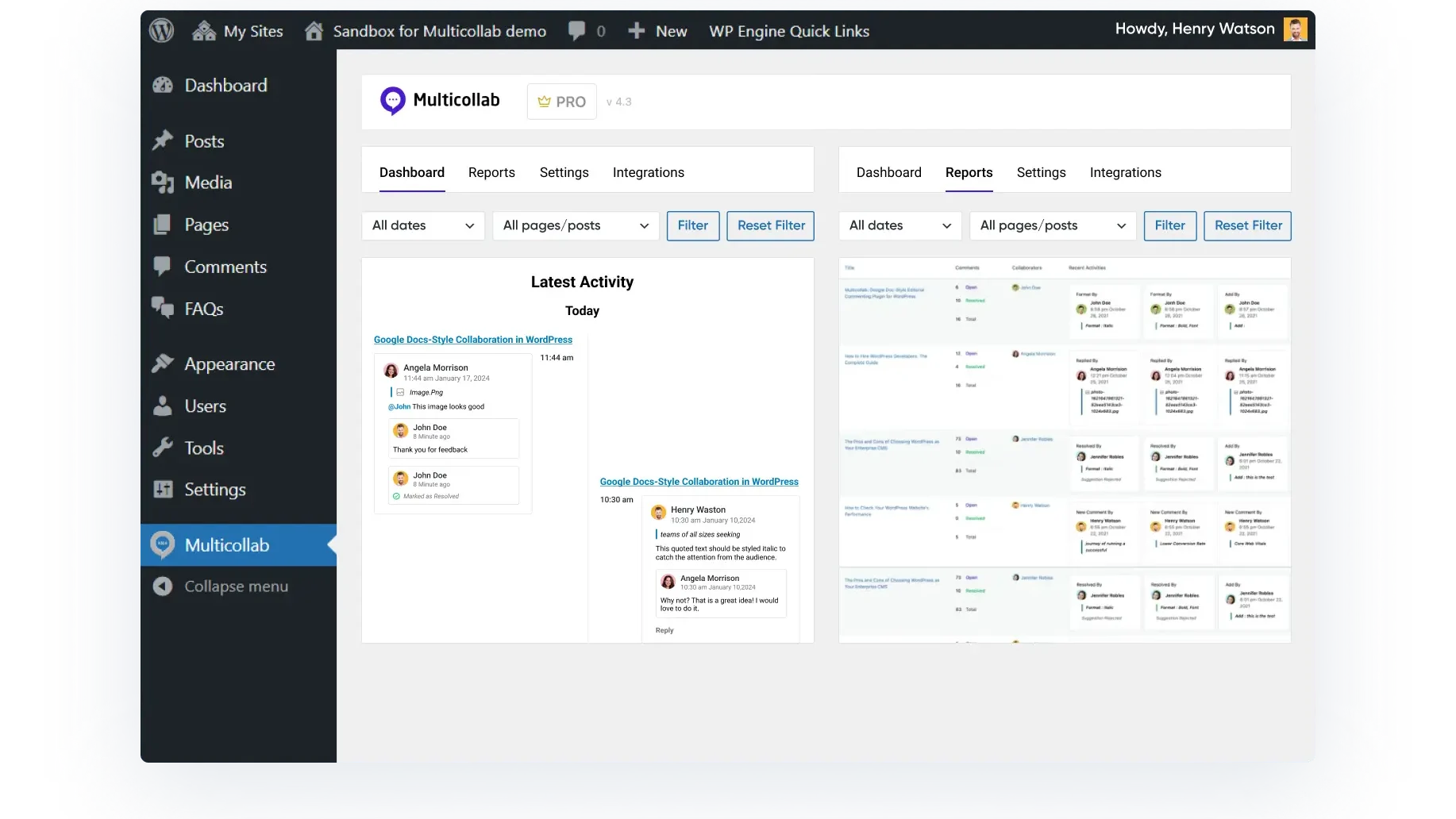
Custom Permissions: Multicollab allows administrators to configure user permissions, deciding who has access to manage comments, suggestions, and other collaboration features. This customization ensures that team members and even guest collaborators have the appropriate level of access and control over the collaboration process.
With these innovative features, Multicollab empowers WordPress content publishing teams to streamline collaboration, enhance communication, and achieve project success with greater efficiency and effectiveness.
Best Practices for Effective Stakeholder Collaboration in Content Publishing Projects
Effective stakeholder collaboration is essential for the success of content publishing projects in WordPress. By implementing best practices, teams can streamline workflows, enhance communication, and deliver high-quality content that meets stakeholder expectations.
Here are some key best practices for effective stakeholder collaboration in content publishing projects:
Establish Clear Communication Channels such as Slack channels or email threads, to facilitate timely and transparent communication among team members and stakeholders. Ensure that all relevant parties are kept informed about project updates, deadlines, and feedback.
Set Clear Goals and Expectations for the content publishing project from the outset. Clearly outline project objectives, deliverables, and timelines to ensure that all stakeholders are aligned and working towards a common goal. Regularly communicate progress updates and milestones to keep everyone on track.
Encourage Open Feedback and Collaboration within the team. Encourage team members to share ideas, provide constructive feedback, and collaborate on content creation and refinement. Create a safe and supportive environment where all voices are heard and valued.
Streamline Review and Approval Processes to avoid bottlenecks and delays. Use tools like Multicollab’s suggestion mode to track edits and revisions, allowing stakeholders to easily review and approve content changes. Set clear deadlines for feedback and approvals to keep the project moving forward.
Regularly Evaluate and Adjust Collaboration Strategies to identify areas for improvement. Solicit feedback from team members and stakeholders to gather insights into what’s working well and what can be enhanced. Be open to making adjustments and refinements to optimize collaboration processes.
Utilize Multicollab for Seamless Collaboration among internal content teams and external stakeholders. With real-time collaboration, inline commenting, and guest collaboration capabilities, Multicollab simplifies the collaboration process and ensures that all stakeholders are engaged and informed throughout the project.
Next Steps: Enhancing Stakeholder Collaboration Strategies with Multicollab
Multicollab is a game-changer for stakeholder collaboration. With its intuitive features and seamless integration, the plugin empowers teams to overcome collaboration hurdles and unlock their full potential.
So, why wait? Take the next step in transforming your editorial collaboration by getting started with Multicollab today!


